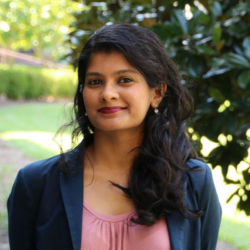
This talk reconstructs the textual and material imprint of anonymous Persian-knowing scribes and clerks, who worked in the Dutch East India Company’s (VOC) settlements and factories across the seventeenth-century Indian Ocean world. Historians have often presumed and lamented that the Islamic empires of the Middle East and South Asia “lacked” maritime archives, unlike their extensive documentary records on agrarian matters. Connecting existing caches of bi-lingual administrative documents and notebooks of learning dispersed across Persographic port-cities Safavid Iran and Mughal Hindustan, this presentation interrogates how anonymous scribes translated and made sense of symbols of archiving, ciphers of recording, and documentary typologies at the intersections and limits of two mutually-illegible chancery worlds. It will reflect on the possibilities of these materials for writing a multi-directional and entangled social history of trans-imperial archives.
Subah Dayal is Assistant Professor at New York University's Gallatin School of Individualized Study. Her first book, Between Household and State: The Mughal Frontier and the Politics of Circulation in Peninsular India, was published by the University of California Press in 2024. Her second project is a comparative study of the scribal cultures of Safavid and Mughal port cities, with a focus on Bandar ‘Abbas, Surat, and Masulipatnam. Her writing has appeared in Comparative Studies of South Asia, Africa, and the Middle East, Journal of the Economic and Social History of the Orient, and The Wire.
Audience
- Faculty/Staff
- Student
- Public
- Post Docs/Docs
- Graduate Students
Interest
- Academic (general)
- Global/Multicultural